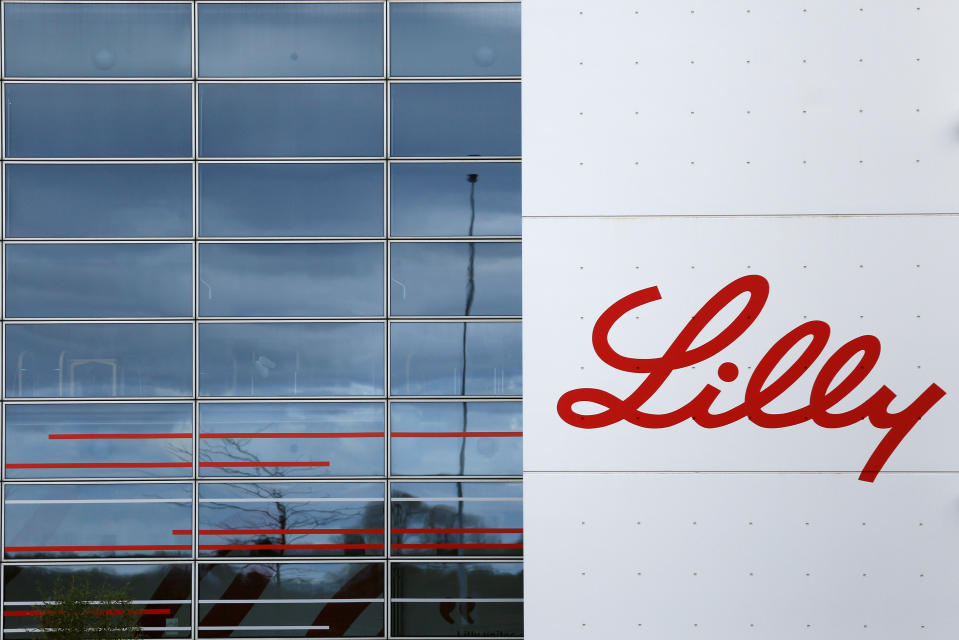Eli Lilly and Company Reaffirms Buy (LLY)

We are reaffirming our BUY rating on Eli Lilly & Co. (NYSE: LLY) with a price target of $145. We see volume growth and expanded indications for existing drugs, along with potential regulatory approvals, as catalysts for growth in 2019. The company launched Emgality (galcanezumab), for the prevention of migraine, in 3Q18. Emgality's uptake should be boosted by its recent approval as a treatment for cluster headaches. Lilly is also driving growth through the recent launches of Olumiant (for rheumatoid arthritis), Verzenio (for the second-line treatment of breast cancer), and Taltz (for active psoriatic arthritis). Although Lilly is seeing slower sales of mature products that face patent expiration and the loss of exclusivity, we expect it to generate EPS growth from margin expansion and the new products mentioned above. We note that management is targeting an operating margin of 30% by 2020, which would represent a 900-basis-point gain from 2016.
Lilly reported 3Q19 results on October 23. Adjusted EPS rose 10% to $1.48 and topped the consensus estimate by $0.09. Still, the results were viewed as disappointing as they were driven in part by nonoperational factors (higher 'other income' and a lower tax rate). The results also raised concerns about the sustainability of top-line growth. The stock sold off on the day following the earnings call.
GAAP net income was $1.254 billion or $1.37 per share, compared to $1.149 billion or $1.12 per share a year earlier. Revenue rose to $5.477 billion (+3% reported; +4% operational). Unit volume grew 8%.
As noted above, the 3Q earnings reflected a lower tax rate and higher other income, rather than operational factors. In addition, sales growth for diabetes drug Trulicity slowed to 24% (down from 32% in 2Q19). Trulicity is one several growth drivers that are expected to offset the decline in other products due to competition or the loss of exclusivity.
Still, looking at the big picture, we think that sales growth will improve in 2020 as Lilly laps the Cialis loss of exclusivity, which opened the way for generic competition in September 2018, and Lartruvo's withdrawal from the market in April 2019. Lilly's key growth products accounted for 15% volume growth in 3Q19.
We also see growth drivers from expanded indications for existing products and the approval of new products. The company highlighted these developments in 3Q:
The FDA approved Reyvow, an oral medication for the acute treatment of migraine. Reyvow will complement Emgality, which was approved in June 2019 as a preventative treatment for migraine and cluster headaches.
Taltz received FDA approval for the additional indication of active ankylosing spondylitis in adults. It is currently approved to treat moderate to severe plaque psoriasis and active psoriatic arthritis.
The European Commission approved an update to Trulicity's label recognizing its cardiovascular benefits. The revision reflects data from the Rewind trial, which demonstrated a 12% reduction in major adverse cardiovascular events in patients using the drug.
The Committee for Medicinal Products for Human Use of the European Medicines Agency recommended marketing approval of Baqsimi as a treatment for severe hypoglycemia in adults, adolescents and children aged four and over with diabetes. Baqsimi was approved by the FDA in July as the first noninjectable emergency treatment for severe episodes of hypoglycemia. Baqsimi is administered nasally.
Lilly has updated its financial guidance for 2019. It now expects adjusted EPS of $5.75-$5.85, up from a prior view of $5.67-$5.77. Based on the updated guidance and the company's 3Q19 results, we are raising our adjusted EPS estimates to $5.80 from $5.73 for 2019 and to $6.65 from $6.60 for 2020.
Our financial strength rating on Lilly is Medium, the middle peg on our five-point scale. The company pays an annualized dividend of $2.58, for a yield of about 2.4%. Our dividend estimates are $2.58 for 2019 and $2.74 for 2020.
Drug development is inherently risky: pipeline products may not progress for clinical or commercial reasons, and setbacks can impact the share price. Acquisitions may also dilute earnings and fail to generate projected synergies. In addition, patent expirations and the loss of market exclusivity typically lead to generic competition.
Eli Lilly, based in Indianapolis, manufactures drugs to treat pain, diabetes, and cancer. The shares are a component of the S&P 500.
LLY shares trade at 16.2-times our 2020 EPS estimate, above the average multiple of 11.4 for our coverage universe of pharmaceutical stocks. We believe that this premium is warranted based on the company's new products, which are showing robust prescription growth. We also expect the approval of new indications for existing drugs to drive further growth in prescriptions. On October 23, BUY-rated LLY closed at $107.40, down $2.44.
This analysis was brought to you by Argus Research using the Research Reports feature available through Yahoo Finance Premium. Click here to start your free trial* and step up your investing. Yahoo Finance Premium members can read more fundamental analyst views by going to Research Reports and filtering by Analyst Reports.

